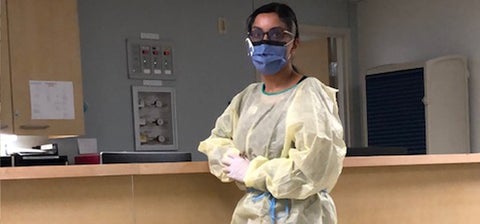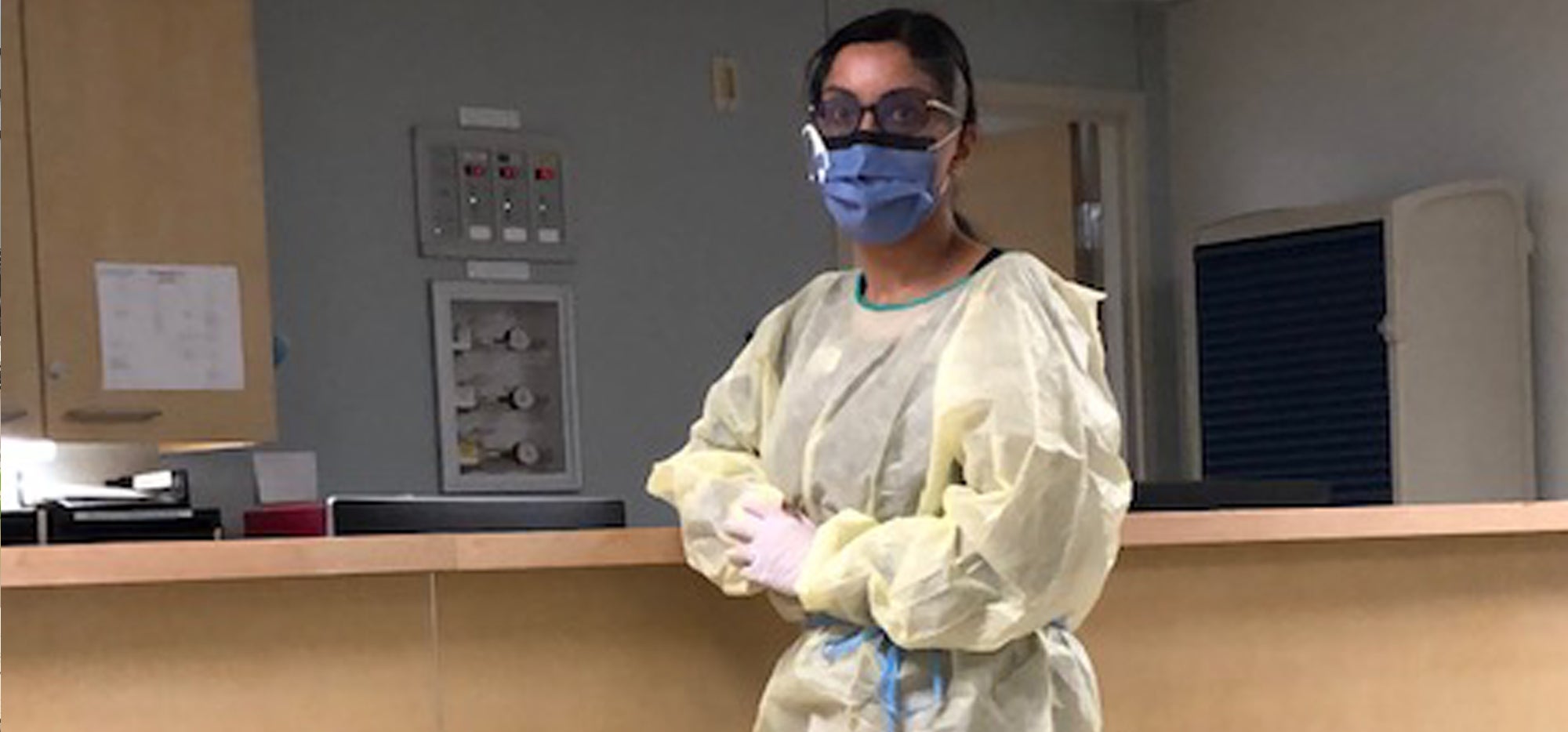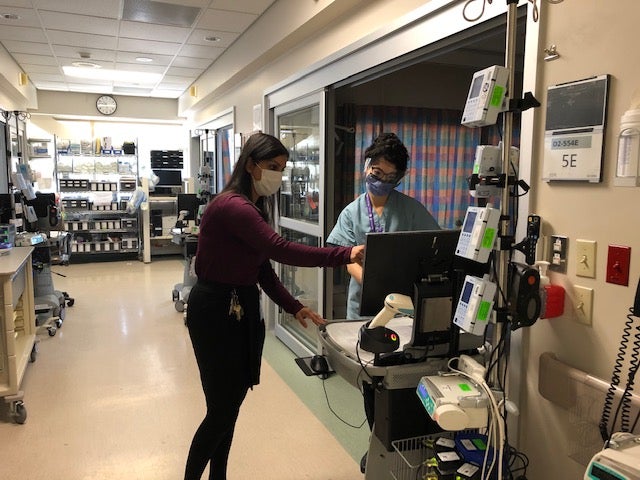
Prof. Rita Dhami shares experiences as infectious disease hospital pharmacist during COVID-19

There’s a sign next to the new staff exit of the London Health Sciences Centre’s Victoria Hospital.
Take a moment to think about today. It says. Consider three things that went well. Be proud of the care you gave. Think of one thing that was difficult… let it go.
It’s advice Rita Dhami, pharmacist and professor at the School of Pharmacy, holds close to her heart as the hospital’s operations have been fundamentally altered by the coronavirus pandemic.
There are some days when it’s not just one thing I have to let go, it’s many. The last few months have been a whirlwind – it truly has been the most challenging experience of my life, and at times it feels overwhelming. But I make sure to hold onto those small wins. They keep me moving forward.
A few months ago, that sign wasn’t posted. Months ago, the hospital didn’t have separate entrances for staff and patients. The demarcation of spaces to minimize unnecessary contact between people was just one of many changes made as the London Ontario facility braced for the first wave of COVID-19 patients.
Dhami is a clinical pharmacist who’s taught at the School of Pharmacy since 2010. She instructs students about advanced professional practice in hospital settings and also runs a course on substance abuse and chemical dependency. At the London Health Sciences Centre, a network of academic health care institutions including an adult hospital, regional cancer centre and children’s hospital, she is the pharmacy representative on two key teams.

On the Infectious Disease (ID) Team, she rounds on patients with COVID-19 at their bedside – or as close to bedside as possible, given the physical distancing rules – to provide care. She ensures that patients are receiving the most appropriate drugs and dosing regimens for their specific situation by reviewing patient charts and assessing their lab results. She meets with the ID physician and resident team by teleconference, and they discuss the best treatment options for each patient they manage.
“Decisions about what drugs to give and when are exceptionally challenging because there’s so much we don’t know about this virus,” she said. “My team and I are continually reviewing the literature and preparing primers for hospital staff. Also, we are providing bimonthly presentations to the pharmacists to share the most up-to-date information we have on treatment.”
Reviewing the latest evidence is just one part of Dhami’s role as the hospital’s Antimicrobial Stewardship Pharmacist. In that role, she provides essential administrative leadership, creating treatment guidelines, providing input to the hospital’s Drugs and Therapeutics Committee on antimicrobial policies, monitoring antimicrobial usage patterns and shortages, and supporting clinical trials that assess treatment options.
I often have to pause and tell myself it’s a marathon, not a sprint. The days are so busy, and I need the reminder to pace myself. It’s hard to do that in the moment, but ultimately, taking it one day at a time, one decision at a time, is what’s best for patients.